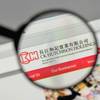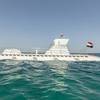IMO Workshop in Thailand on Emission Cut
International Maritime Organization (IMO) said that reducing atmospheric pollution from ships and improving air quality is an integral part of its work. "This principle is clearly enshrined Under MARPOL Annex VI," the UN body said in a press release.
IMO recently held a workshop on MARPOL Annex VI in Bangkok, Thailand (24-26 June).
The workshop, aimed at shipping stakeholders, strongly encouraged ratification and implementation of MARPOL Annex VI including regulations on ships' energy efficiency.
Participants were reminded that proper implementation of the convention would have a significant beneficial impact on the atmospheric environment and on human health, particularly for people living in port cities and coastal communities.
The event also looked at new requirements for ships to cut sulphur oxide emissions, which enter into effect on 1 January 2020, marking a sea change in fuel used by ships. Participants also discussed port-related activities to facilitate reduction of GHG emissions from shipping.
The workshop was organized within the framework of the 'Energy Efficiency' program of the Integrated Technical Cooperation Programme (ITCP), with relevant contributions from IMO's major projects aimed at reducing atmospheric pollution from ships, namely GloMEEP and the EU-funded GMN project.
MARPOL Annex VI, first adopted in 1997, limits the main air pollutants contained in ships exhaust gas, including sulphur oxides (SOx) and nitrous oxides (NOx), and prohibits deliberate emissions of ozone depleting substances (ODS).
MARPOL Annex VI also regulates shipboard incineration, and the emissions of volatile organic compounds (VOC) from tankers.














